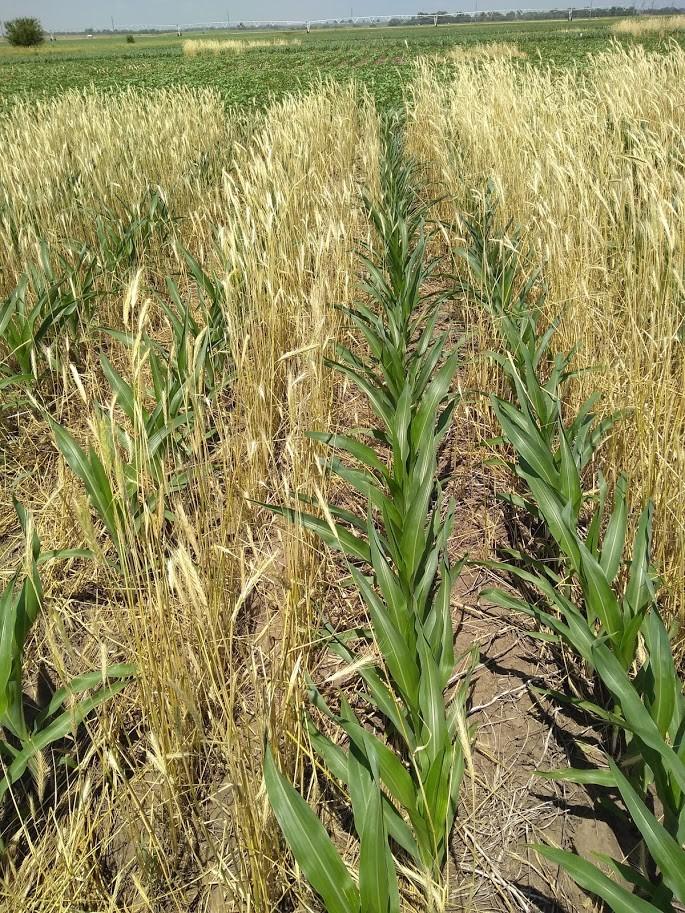Are cover crops negatively impacting row crops?

One example of evolving cover crop management is growing corn in cereal rye that was terminated after corn planting ("planting green"). Picture taken June 17, 2020 at the Eastern Nebraska Research and Extension Center near Mead, Nebraska. Credit: Katja Koehler-Cole Usage Restrictions: For use with this story only
In an article recently published in Agricultural & Environmental Letters, a publication of the American Society of Agronomy, Crop Science Society of America and Soil Science Society of America, researchers reviewed literature documenting effects of allelopathic winter cover crops on four row crops.
Studies that used known allelochemicals in the lab or measured allelochemicals in the field were included.
Only seven studies met the criteria for inclusion and six of them were lab studies. Corn and wheat germination and root length were sometimes impacted by allelopathic chemicals from cereal rye and other cover crops, but soybean was unaffected.
One field study reported reduced cotton performance due to allelopathic cover crops.
We could not establish clear cause-and-effect relationships for row crops grown in the field due to the limited number of studies. However, with the increase in cover crop acreage and constantly evolving management practices, research to identify risk factors for allelopathic impacts and how to avoid them is needed.
###
Adapted from Koehler-Cole, K, Everhart, SE, Gu, Y, et al. Is allelopathy from winter cover crops affecting row crops? Agric Environ Lett. 2020; 5:e20015.
Media Contact
More Information:
http://dx.doi.org/10.1002/ael2.20015All latest news from the category: Agricultural and Forestry Science
Newest articles

NASA: Mystery of life’s handedness deepens
The mystery of why life uses molecules with specific orientations has deepened with a NASA-funded discovery that RNA — a key molecule thought to have potentially held the instructions for…

What are the effects of historic lithium mining on water quality?
Study reveals low levels of common contaminants but high levels of other elements in waters associated with an abandoned lithium mine. Lithium ore and mining waste from a historic lithium…

Quantum-inspired design boosts efficiency of heat-to-electricity conversion
Rice engineers take unconventional route to improving thermophotovoltaic systems. Researchers at Rice University have found a new way to improve a key element of thermophotovoltaic (TPV) systems, which convert heat…



